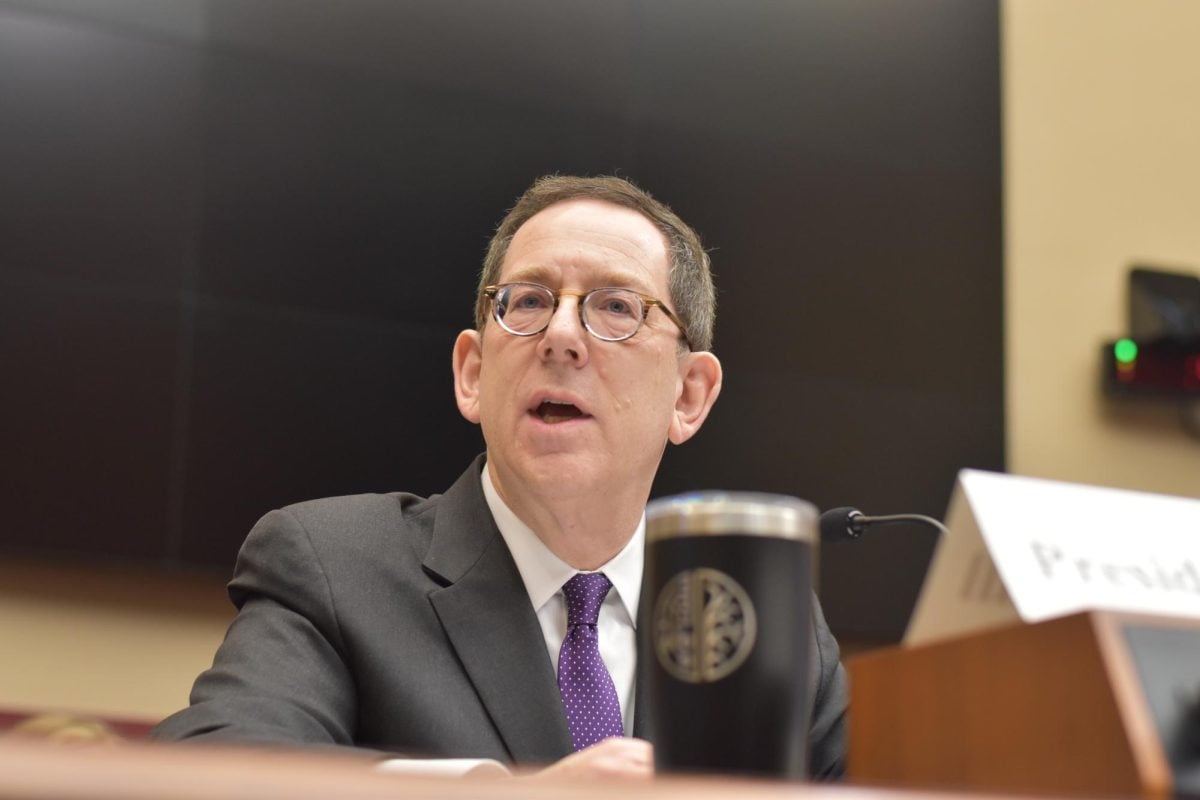Three days after the Deering Meadow encampment disassembled in April, Northwestern Provost Kathleen Hagerty commended Kellogg Prof. Nour Kteily for his role in negotiating with pro-Palestinian student protesters.
“He spent an incredible number of hours teaching a very disorganized and upset group of students how to organize themselves,” Hagerty wrote in a May 2 email to Kellogg Dean Francesca Cornelli. “(He) gave them the tools to turn an incredibly negative situation into something positive.”
But a report from the House Committee on Education and the Workforce attacked Hagerty, Kteily, and other NU administrators and faculty for how they reached a deal with encampment organizers. The report, published Oct. 31, criticized how several other colleges, including Harvard, Columbia and UCLA, handled their encampments.
NU leaders prioritized de-escalation with minimal concessions, documents accompanying the report suggest.
On several occasions, University leaders including Hagerty and President Michael Schill lauded NU’s approach to ending the encampment without force.
“I am proud of our community for achieving what has been a challenge across the country: A sustainable, de-escalated path forward that prioritizes safety, including our Jewish community,” Schill’s notes for a post-encampment meeting with the University’s Board of Trustees read.
The notes pointed out that no other university had achieved that result effectively at the time.
In her email to Cornelli, Hagerty also called the University’s strategy “a more idealistic path.”
Earlier during the encampment, Schill also reacted positively after encampment organizers asked outside participants to leave and demonstrators to not put up new tents, according to documents from the report.
“Wow. This is great news” Schill texted Vice President of Student Affairs Susan Davis at 3:46 a.m. on April 28. “Let’s hope it lasts.”
Early on during the encampment, some administrators were unhappy with the student demonstrators’ approach to negotiating toward divestment, according to documents included in the report.
After an initial meeting with encampment organizers, Hagerty texted Kteily that she was “frustrated” about the conversations.
“If the students really cared about actual divestment then they need the patience to actually do the work to make it happen,” Hagerty texted Kteily before 1 a.m. on April 26. “We could really help them but they showed zero interest. Real change requires some effort.”
Despite their insistence on negotiating with student demonstrators instead of using force, administrators tried to minimize meeting student demands.
After identifying student protesters’ main goals — including divestment from Israel, an end to partnerships with Israeli companies, the hiring of a non-Zionist campus rabbi and the end of the Israeli Innovation Project — Schill told several community members he would not move on any of the demands.
“We said a definitive no to all of them,” he messaged Hillel director Michael Simon on April 30. “We engaged them on things that we already were planning like the (MENA) house and the reestablishment of the (Advisory Committee on Investment Responsibility) … We added vague language on transparency and future conversations.”
A University spokesperson did not say why administrators chose to reject those four main demands. She also did not say whether NU leaders informed students they were already planning to reestablish the Advisory Committee on Investment Responsibility and develop an affinity space for Middle Eastern and North African students.
An earlier message from Schill asking Davis to not “offer rabbi (to protesters) until we talk” drew suspicion from House Republicans in the report. They cited that exchange as evidence that Schill considered student demands for a non-Zionist rabbi and misled Congress in hearings during the spring.
Schill previously testified in front of the House committee in May about how he handled the student demonstrations, which paralleled dozens of college encampments across the country U.S.
In a Nov. 2 statement, Schill wrote that his testimony in front of the House Committee was “accurate, truthful and supported by what we agreed to do in connection with the agreement we reached.”
Schill’s notes for the post-encampment Board of Trustees meeting also maintained that administrators denied all requests from student demonstrators when negotiating the Agreement on Deering Meadow.
“This agreement was NOT an abandonment of our values,” the notes read.
Ultimately, the “things we planned to do anyway,” as Schill’s notes labeled the ACIR and MENA House, helped bring the encampment to a close.
Email: [email protected]
Related Stories:
— Northwestern responds to House committee antisemitism report
— Administrators, student demonstrators reach agreement to end encampment on Deering Meadow






